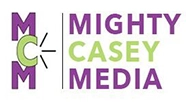In case you missed it, getting a Really Big Diagnosis like, say, cancer, is a big whack to the wallet. Even if you have titanium-plated insurance (spoiler: there is no such animal in the US healthcare payment system), there will be bills for many, many things. If you have a deductible, be prepared to build a spreadsheet matrix with complex algebra to calculate how much of what care will be on you. If you have co-insurance – your spouse’s employer coverage, for instance – that’ll add complexity to your algebra. It’s a lot. In a piece on the Discover credit card and financial services blog, recent Cancer Club inductee Kris Blackmon lays out how unexpected medical expenses impact people dealing with a Really Big Diagnosis, or any ongoing health issue that requires lots of clinical care – and therefore medical bills – offering a solid strategy for dealing with those bills. Do your research Talk to your clinical team’s billing office in advance about what your options are under your coverage plan. You’ll have to do this with each provider and facility you’ll receive care in – Blackmon says she chose to be treated at a major academic medical center because of the one-stop care coordination available in a comprehensive care setting. Ask all the questions If you’ve been hanging around these parts for any length of time, you know I’m all about being your own best advocate when getting medical treatment. Kris Blackmon puts mustard on that ball by recommending that, even if you wind up in the emergency department (which can totally happen during cancer treatment), you ask to speak to the billing department rep in the ED before any treatment is ordered, or delivered, so you know what your options are, and what the bill might be for them. Read the…
A group of about 20 passionate e-patients, including e-Patient Dave his own self and yours truly, gathered around a biiiiig table on Monday in Philadelphia to talk about what an e-patient Bill of Rights might look like. I have to give a shout-out to my buddies at WEGO Health, particularly Jack Barrette, Bob Brooks, and Natalia Forsyth One conclusion: don’t call it the e-patient Bill of Rights. Since we’re talking digital healthcare, let’s call it the Digital Patients Bill of Rights. That conclusion was reached hours into the discussion, which ranged over topics from chronic conditions like diabetes, HIV/AIDS, multiple sclerosis, rheumatoid arthritis, lupus, multiple sclerosis, and fibromyalgia to acute illness like cancer. We had about four hours to hammer out a first-principles statement, and Mark Bard of the Digital Health Coalition deserves the Cat-Herding Nobel Prize for keeping a group of vocal, passionate, diverse e-patients on task. To lift directly from the Klick Pharma blog (Klick was one of the sponsors of the event, along with Pixels & Pills, Health Central, Care Coach, Kru Research, Radian 6, Red Nucleus, Think Brownstone, Verilogue, and a who’s who of health media sponsors): “After an intense four hours, we were able to reach consensus on the following key messages as a foundation to a Digital Patient Bill of Rights: Shared access to my data Attitude of collaboration and overall respect The patient is the largest stakeholder Transparency and authenticity across all areas Voice of the patient is a legitimate (clinical) source The right to efficient communication with providers who utilize the technology that we need” It’s a start. A damn good one. The Klick Pharma blog post also has a full list of all the e-patients who participated in the conversation. It was quite a day. Some of my thoughts about the conversation, and the event: Those dealing with chronic conditions have an even deeper need to be activist e-patients. They also have a greater level of knowledge, and can be true leaders in this on-going discussion. Each healthcare…



